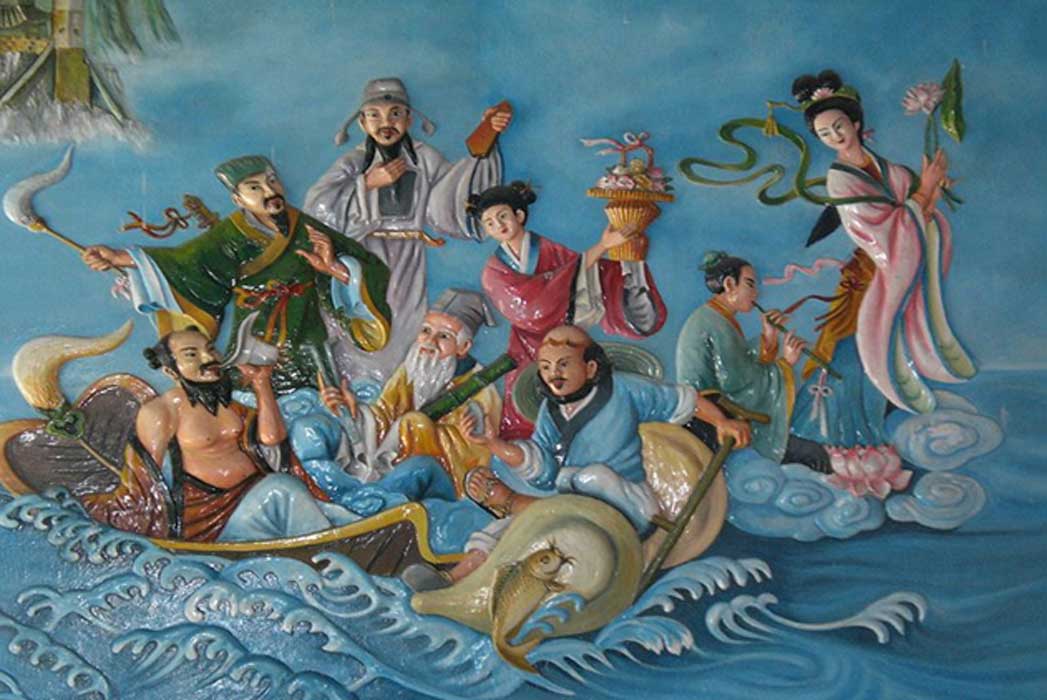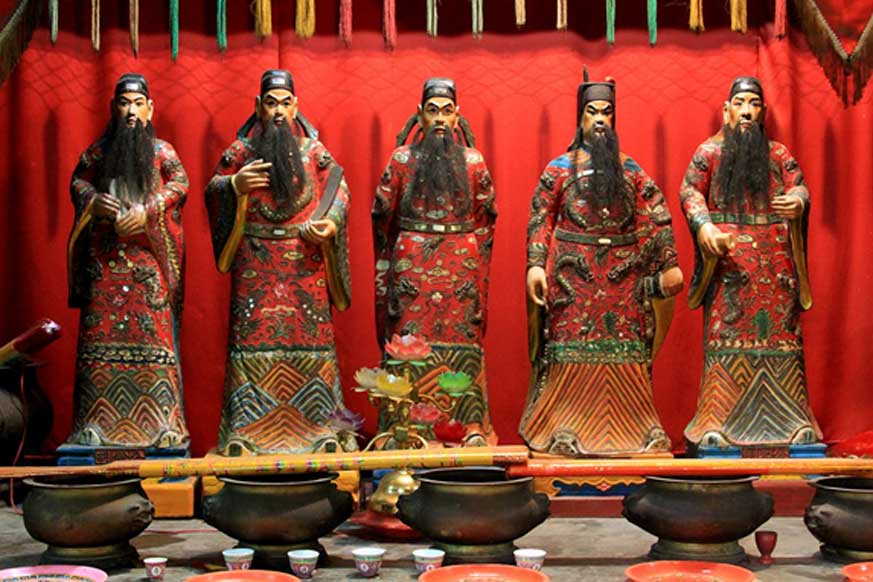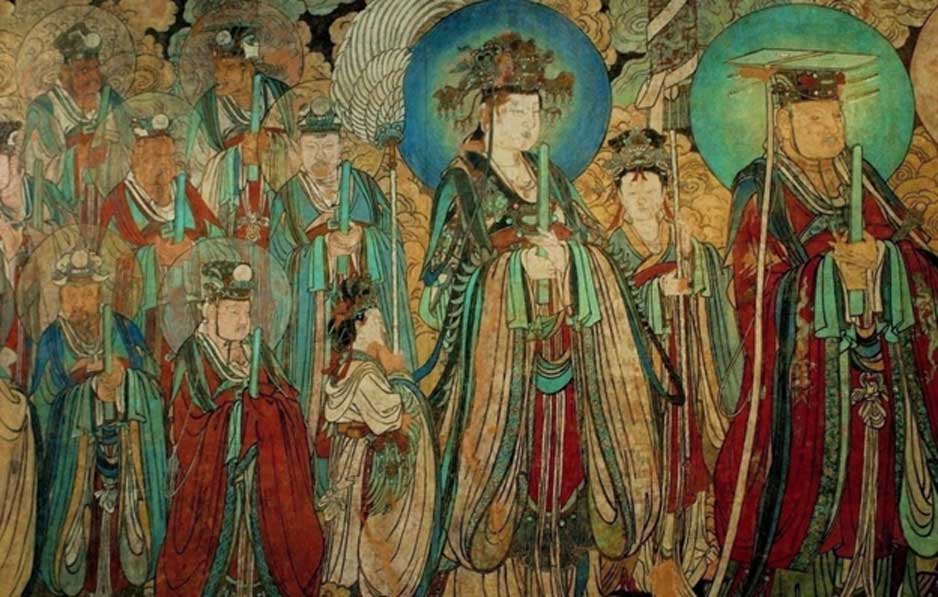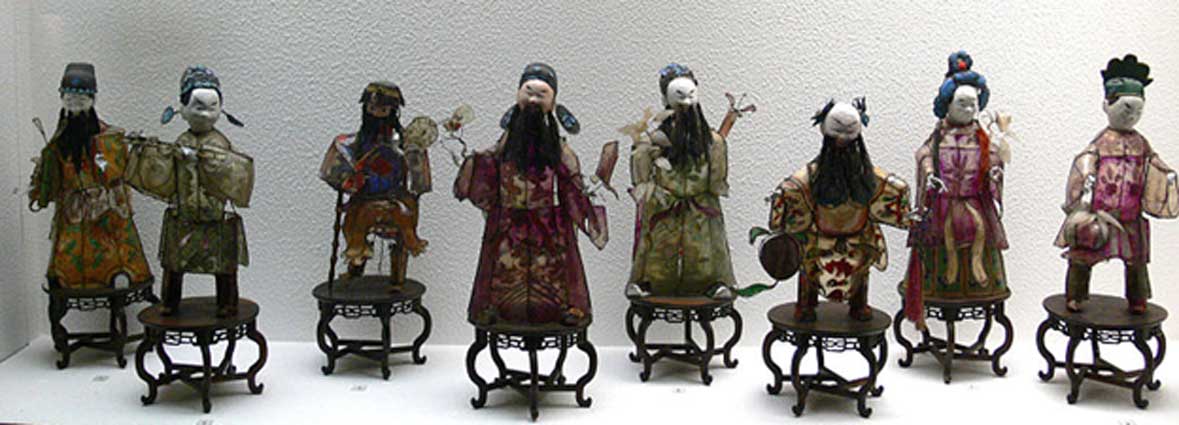
The 8 Immortals of China: How ordinary mortals worked hard to achieve superpowers and become legendary
The general appearances of Chinese gods lead us to think of them as sober imperial bureaucrats. They mostly look like middle-aged men dressed in official-looking robes, spending their time reading formal petitions and giving stern orders to their underlings. Although several of the most popular deities are female, gender immediately raised problems for the bureaucratic image of some important gods (as governing elites tend to favor a religious practice that, in proving the connection of the state to the divine, legitimizes the state's efforts to preserve itself).

Altar to the Five Officials worshipped inside the Temple of the Five Lords in Haikou, Hainan. (CC BY-SA 3.0)
Women, as well as men who were viewed to be rebels or misfits, tended to be excluded from the sites and definitions of power. An example of this is the worship of Tu’er Shen, the god of homosexuality, that was mostly suppressed, if not abandoned completely—particularly when, in the Qing dynasty (1636–1912), Zhu Gui, a grain tax circuit official of Fujian in 1765, attempted to standardize the morality of the people by prohibiting “licentious cults”. There is, therefore, not a lot of diversity within the divine pantheon in Chinese mythology.
However, the immortals are a different story.
The Xiangzhou region of Guangxi, China, has only a few temples to bureaucratic-looking deities. They worship three Taoist hermits who bore little similarity or relationship to the “official” hierarchy of gods. The art of the Jin tombs of the 12th and 13th centuries depicts a group of eight Taoist immortals in wall murals and sculptures—the most of which is a mural in the Yongle Gong (“Eternal Joy Temple”) at Ruicheng. Pa hsien (“the eight Immortals”), are often depicted either together as a group or alone to give more homage to that specific figure.

The Immortal Procession, Yongle Gong. (Public Domain)
All these indicate that the immortals were also very influential, perhaps as influential as the deities themselves! Additionally, the immortals have very little to do with bureaucracy and are considered to be a very diverse lot.






